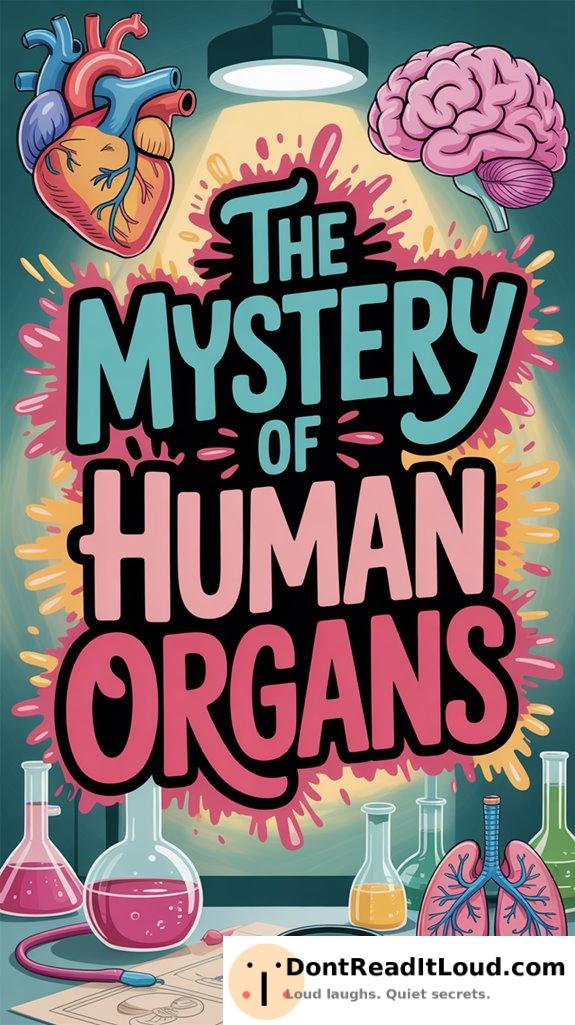
When you explore the mystery of human organs, you uncover a fascinating network of communication through neural and hormonal signals. Your body is equipped with remarkable regenerative powers, relying on stem cells and medical advances. Despite this strength, organ failure can still occur from lifestyle, genetics, or immune problems. If organs can’t heal, transplants offer renewed hope. There is always more to learn in this captivating field of human biology.
Communication Between Organs: A Complex Network
While exploring the complex network of organ communication, you’ll find that the human body is a marvel of intricate interactions. It’s like your organs are having a constant group chat, exchanging updates about your latest pizza indulgence.
Neural pathways act as speedy messengers, sending signals faster than a caffeine-fueled squirrel. In contrast, hormonal signaling delivers messages at a slower pace, more like a poetic letter than a quick text.
When your brain signals your stomach that it’s time to eat, these pathways ensure the message arrives. So, next time you feel hangry, remember it’s just your organs missing a cue. They’re working hard to keep everything in balance!
The Enigma of Organ Regeneration
As you’ve seen, the body thrives on communication, but what about its ability to heal and regenerate? Imagine your body as a superhero, not in a cape, but equipped with the tools of stem cell therapy and regenerative medicine.
These innovative allies repair tissues, quickly transforming pain into relief. Think of stem cells as versatile interns, eager to master any organ’s job. If the liver needs backup, these cells step in to restore and rebuild.
Regenerative medicine acts like a skilled handyman for your body, rebuilding and renewing tissue with precision. So, if you stub your toe, remember—your body has an advanced repair crew, always ready to help you bounce back.
When Organs Fail: Understanding the Causes
Despite the body’s remarkable resilience, organs can sometimes fail, leading to serious health challenges. It’s like your organs decide to go on strike without warning. But what triggers this rebellion? Organ failure can arise from many causes—smoking or eating too many sweets are common factors.
However, genetics, infections, and chronic illnesses also play significant roles. Think of these as the hidden troublemakers in your body’s story. Occasionally, the immune system gets mixed up and attacks your organs by mistake. It’s a classic case of mistaken identity!
Unraveling the Secrets of Organ Transplants
When organs falter, modern medicine offers a remarkable solution: organ transplants. Envision your liver going on strike, demanding better working conditions. Fear not—science has got your back! Thanks to biomedical breakthroughs, failing organs can be replaced much like a mechanic swaps out car parts.
Of course, this raises tough ethical questions. Who receives that desperately needed kidney? It’s almost like a high-stakes game show, with life itself as the prize.
Now, don’t be squeamish. Transplants are like giving your body a fresh start—no endless software updates required. Surgeons act as expert matchmakers, connecting patients with life-saving organs.
Conclusion
You’ve just delved into the intricate world of human organs, uncovering the complex communication networks that keep them functioning smoothly. Regeneration remains a fascinating puzzle, suggesting exciting prospects for future medicine. When organs fail, identifying the underlying causes is crucial for better health outcomes. Exploring the world of organ transplants reveals the remarkable progress that offers hope to many. Embrace these mysteries, for they shape the future of medicine.



